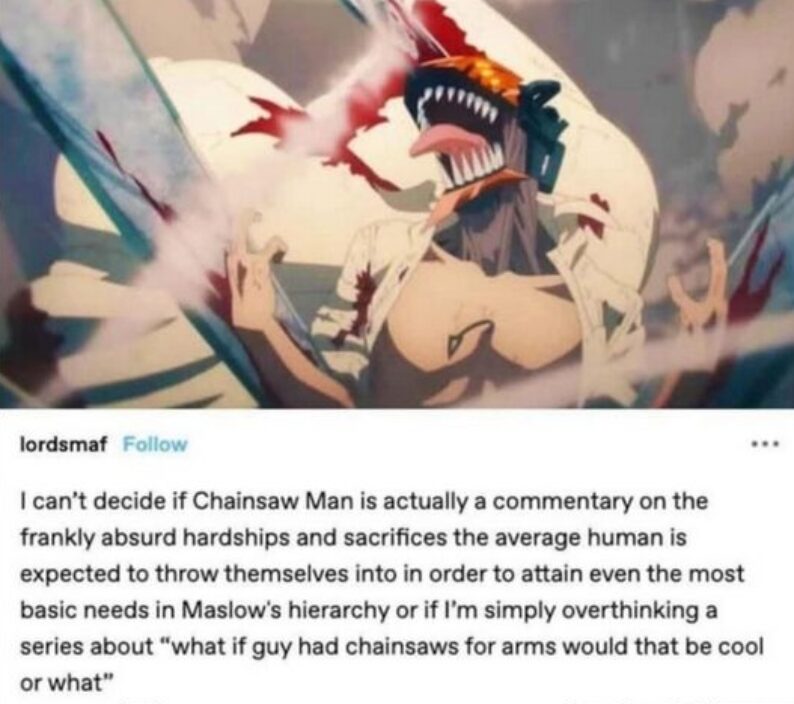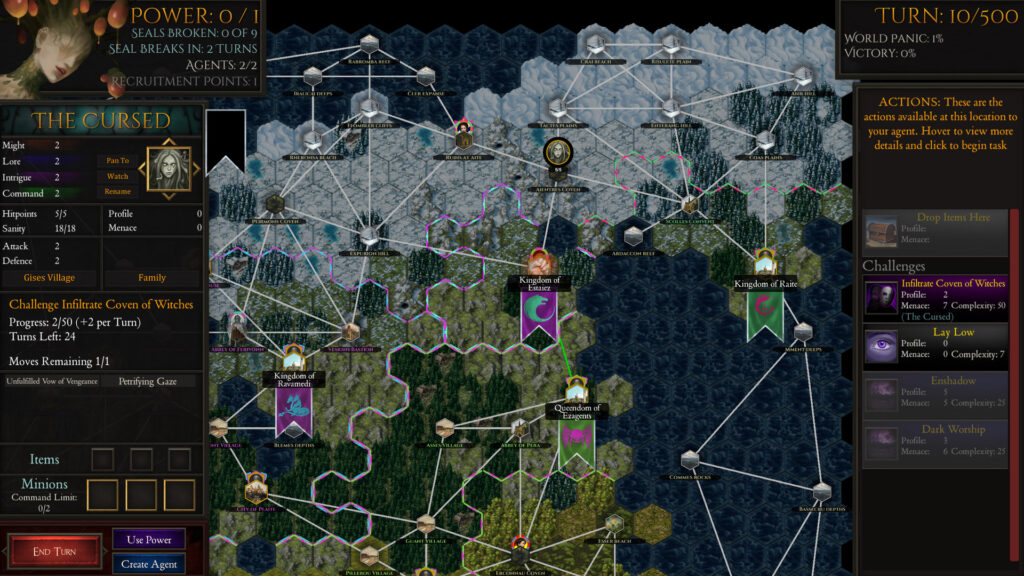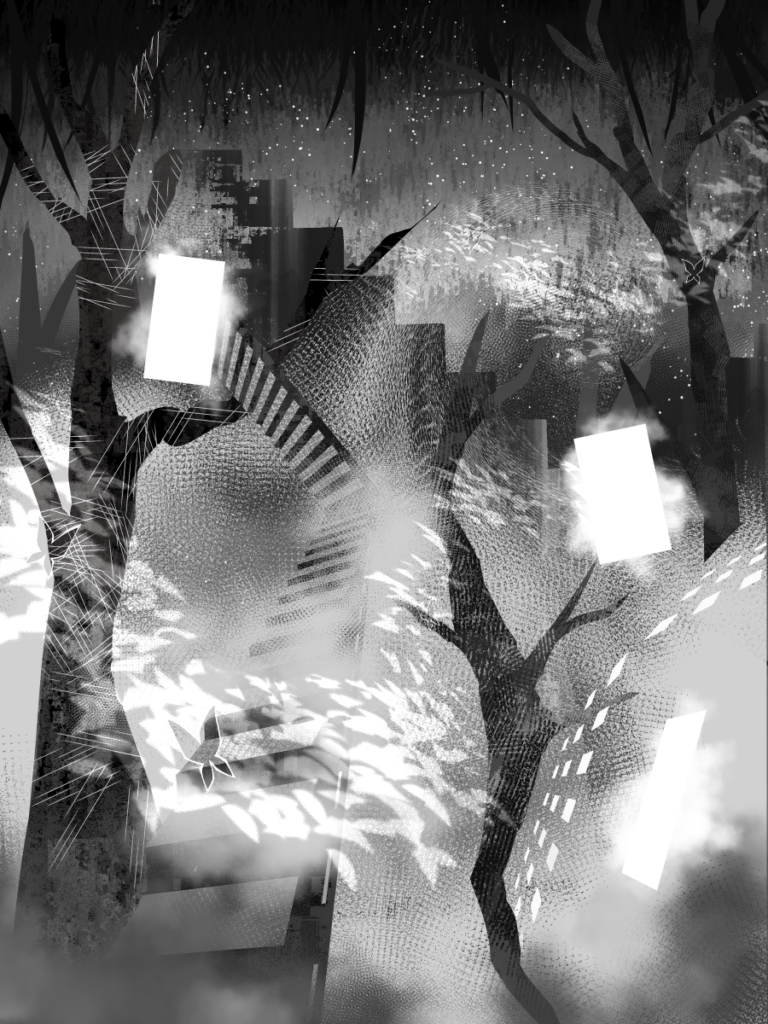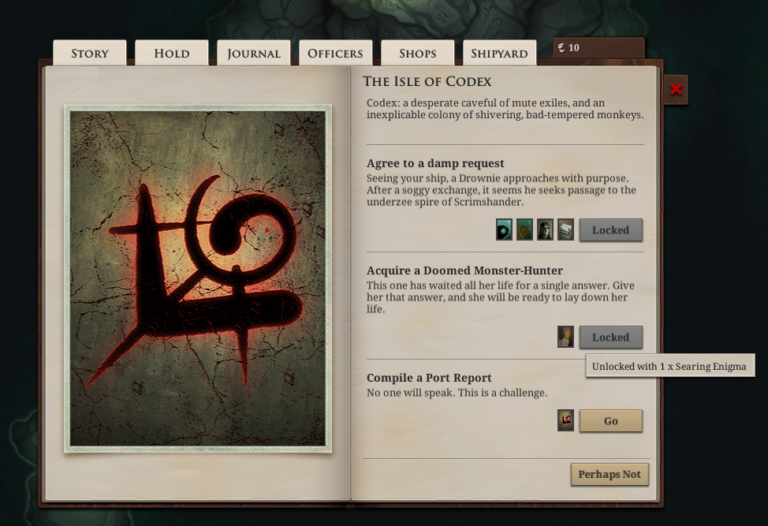“It is a truth universally acknowledged that a single developer, possessed of the task of marketing themselves, would rather chew glass.“
At the end of September I submitted The Matter of Being into Rising Tide, which is a Krafton-backed competition that tries to identify promising new studios and invest in them by having the public vote on their favorite trailers. The top ten concepts (out of about 450 participants) were going to be selected for funding interviews, and to my own shock, The Matter of Being actually landed up there at #5!
I was over the moon!
But as you can probably guess from the title, TMOB didn’t get it. It turns out that what the competition is really trying to do is acquire not studios, but IP. The Secret Histories belong to Weather Factory, and I was told that made TMOB ineligible. I won’t go into detail about what that did to my mood ($100K would solve all of my problems), but I thought that, in order to keep it from being a complete wash, I would share some of what I learned in the process.
This article therefore serves two purposes. First: to explain to all those who kindly voted for this project why we’re probably going to ask you for money next year. And second: to explain how the painfully unintuitive and daunting process of submitting to Rising Tide actually made TMOB a better game.
Lesson 1:
It’s Okay to Serve the Rule of Cool

When I first decided that I was going to submit to Rising Tide, I had a problem. This was a trailer competition, and here I was with a game idea which I thought was going to be “sort of like a visual novel, and sort of also like Crusader Kings?” These aren’t ideas that trailer well even if you have a budget. The incredible Cosmic Wheel Sisterhood relies heavily on out-of-engine animation for its trailer. As does Crusader Kings itself. Unfortunately, I can’t illustrate or animate to save my life.
In a different context, I probably would have made a game that looked like a potato (I adore plenty of potato-looking games). Instead, however, I decided that I would just try and make things sick as hell, skills be damned.
This put me in a novel mindset. I have many strong and carefully considered opinions on game design and narrative structure, and not one of them mattered for the task at hand. What mattered was making things look visually (and interactively) interesting from the jump. It felt like working backwards, and it looked a little like this:
“Cultist Simulator is played on a table. What if TMOB was played on a surface too? Here’s a free stone altar on TurboSquid. I can probably put the altar in The Wood. And what’s the Wood without some cool mist on the floor and some light?”
“I can’t draw, but cave paintings look kind of cool, right? And raw prophets probably don’t draw either. What if everything is crude glyphs but it looks on purpose? How do I make these buttons look fun and meaningful to push on? Persona has those cool menus…”
“I want character relationships to matter like they do in Crusader Kings. But even in Crusader Kings, it’s kind of hard to follow who’s who. What if they were all present on a force directed graph? What if the force directed graph used CHAINS instead of LINES?”
It felt almost childlike but it led to some of my favorite little features, like the character “barks” when you interact with them on the character web. My motivation basically boiled down to “I need something to move with enough intensity to match the (free) music I’ve chosen.” If I had worked from a purely mechanical perspective, I probably would have reinvented the CKIII interface. Instead, we’ve got this!

In short, I think I’d recommend this exercise to anyone who gets caught up in their own head. Building for purely visual presentation gives you license to steal ideas, to do things just for fun, and capture game feel well in advance before you have to start coding anything too serious.
Lesson 2:
You Should Know What Your Game Costs (Even if You’re Broke)

When I started work on TMOB my plan looked a little like this: I would forsake all civilization, take up exile in the woods of Maine, and eat rice for pennies on the dollar until It’s Done™. Frankly, that’s still what we’re doing. But what I didn’t realize at the time was that this dogged attitude is a perfect Trojan horse for that slayer of all projects: Scope creep.
If you’ve consigned yourself to passion and to suffering you probably won’t ever come up with a good excuse to call it a day.
Rising Tide, however, offered a very specific budget. Fifty thousand dollars a year for two years. And by this time, I had met the people who would become my teammates in this endeavor. What can you do with fifty thousand dollars a year split three ways? Not nothing, but not a lot, especially if your teammates are not also living in the woods. Thus began the great calculations. How many portraits could I pay for? How many minutes of music? TMOB’s five months old. What has to be true for my current contribution to account for 20% of the work I’ll have to do?
It wasn’t very fun.
At the end of it, though, I had an idea of the game’s scope. I knew approximately how many characters I’d have to write, and how many playable spirits I could afford. Mechanics were streamlined, others were scrapped. Existing systems were expanded to their limit to avoid having to write new ones, and I try to assume YAGNI (“you ain’t gonna need it”) on every new thing I think of.
And all that cutting means there’s an end in sight.
I’ve probably underestimated how much work there is to do — I’m told everyone does — but I can only imagine how sprawling this project would have been without going through the exercise of figuring out how big the project was going to have to be to feed a specific number of people for a specific number of years. I do, therefore, begrudgingly recommend it.
Lesson 3:
Be Honest About the Par

This one’s tough, but I promise that I’m not being cynical. Bear with me.
TMOB isn’t my first submission to Rising Tide. I took another crack at it earlier in the year with a different project, and I was absolutely floored by the amount of unbridled talent on display. There were people with sumptuous art styles, people with the ability to program mechanics I couldn’t begin to replicate, and loads of novel and fun ideas I had never considered before.
And then it was really interesting to see when all those factors mattered, and when they didn’t.
As I went through and voted on my favorite games, I noticed that the more familiar a title appeared to me, the more I expected from it. If it looked like Rimworld, I needed the developers to show me simultaneously that the game was as good as Rimworld, while also showing me why their game was different enough to be more than a mod. The same was true for deckbuilders, for metroidvanias, and so on.
And then there were games I judged much more gently. A game about a lost dog finding its owner? Done. A game where you’re a cowboy that serves drinks by shooting the tap? Yes, please. They didn’t really look like anything else, and in fact they tended to be less polished than the games in identifiable genres. You could say that bar was lower, but what it felt like was that for these games, the bar hadn’t even been set.
Which is why I wound up pausing my previous project. After becoming aware of my own criteria, I set out to play the game most like what I was working on. It’s called Starcom: Nexus. I played it, I liked it, and I decided that I didn’t have enough in the tank to make my project at least as good as Starcom, let alone iterate on it in a “give me one hundred thousand dollars” kind of way by the time the next competition rolled around. Was I really going to dedicate the next two years of my life to something that had already been done, and well?
No.
But I think a lot of people do, and while that’s great if you’ve got the time, resources, and talent to try and raise the bar on a defined genre, I suspect it’s a bad idea for a first-time, unpublished, solo developer with no money or health insurance. Now, TMOB isn’t even out, and nobody but me can assure you that it’s going to be any good, so you probably shouldn’t take my word on anything. Instead, check out the winners for Rising Tide #2, and maybe you’ll see what I do.



